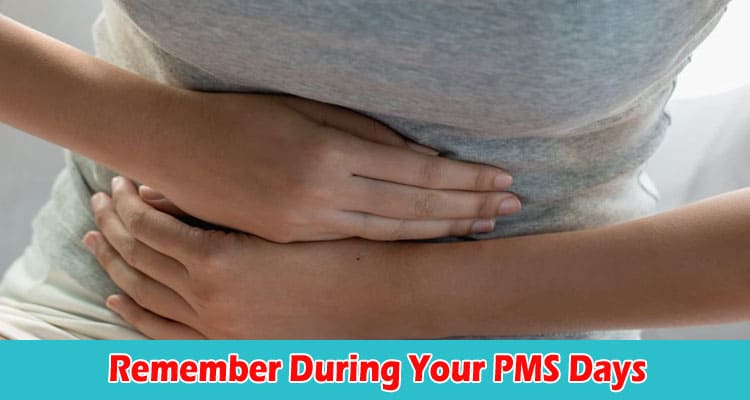Most women encounter Pre-Menstrual Syndrome (PMS), which is typically distinguished by a range of physical and emotional symptoms that manifest a few days before the start of menstruation. For many women, PMS is a challenging period that brings mood swings, fatigue, bloating, and other discomforts.
In navigating these murky waters, there are numerous effective remedies and coping mechanisms, such as using high-quality PMS vitamins. Although these remedies may provide assistance, it is crucial to discover the approach that suits you best, as every woman’s experience is unique.
This comprehensive guide explores the dos and don’ts to remember during your PMS days, providing personalized advice and information that can lead to more comfortable and manageable PMS experiences.
Dos to Remember During Your PMS Days
Maintain a Balanced Diet
To combat PMS, prioritizing a nourishing and well-rounded diet becomes crucial. This entails embracing abundant lean proteins, whole grains, fruits, vegetables, and healthy fats, which sustain energy levels and diminish cravings. Also, consider eating small, frequent meals to maintain stable blood sugar levels and reduce feelings of fatigue and irritability.
Practice Mindfulness and Relaxation Techniques
Mental health plays a crucial role in managing PMS symptoms. Stress and anxiety can intensify feelings of irritability and mood swings. Mindfulness exercises, deep-breathing techniques, and meditation can help maintain emotional equilibrium. You can also try massages, hot baths, or other relaxation activities.
Stay Hydrated
Water retention and bloating are common PMS symptoms. Staying hydrated is of utmost importance, so be sure to drink at least eight glasses of water throughout the day. Replace sugary and caffeinated drinks with herbal teas and water-rich fruits or vegetables like cucumbers, watermelon, and celery.
Do Regular Exercise
Regular exercise is a great way to reduce PMS symptoms. Exercise helps improve your mood and reduce stress levels while also helping to reduce bloating. Strive to engage in at least 30 minutes of moderate physical activity daily, such as brisk walking, cycling, or swimming. You can decide to focus on low-impact exercises that won’t add too much strain to your body.
Prioritize Sleep
Fatigue can significantly worsen PMS symptoms. So make sure to get enough restful sleep. Try to go to bed and wake up at consistent times each day, and avoid using electronics before bedtime, as it hinders sleep quality.
Don’ts to Remember During PMS Days
Don’t Binge on Processed Foods
Salty snacks and sugary treats may seem appealing when you’re dealing with PMS, but these foods can worsen symptoms like bloating and mood swings. Instead, satisfy your cravings with healthier alternatives such as fresh fruits, dark chocolate, or nuts.
Don’t Neglect Emotional Health
While it’s natural to focus on physical discomfort, don’t forget to take care of your mental health. If needed, reach out for the support of loved ones, and make sure to talk about your feelings freely and honestly. Consider meeting with a therapist or counselor if symptoms become too overwhelming.
Don’t Isolate Yourself
During PMS days, it can be easy to feel lonely and isolated. Reach out to friends or family members for a chat or even just some company. Engage with others and enrich your experiences by connecting. Even if you prefer moments of quietness, consider participating in shared activities like taking a stroll or enjoying a movie together.
Don’t Rely on Refined Carbs and Sugars
While you might crave sugary snacks or refined carbohydrates during your PMS, these foods can cause blood sugar fluctuations, leading to mood swings and energy crashes. Try to opt for complex carbohydrates such as whole grains, which won’t cause a spike or crash in energy.
Don’t Overuse Caffeine and Alcohol
Caffeine can help combat fatigue, but excessive consumption can result in increased anxiety, irritability, and disrupted sleep patterns. Similarly, although alcohol may be perceived as a relaxation method, it can worsen PMS symptoms and increase the risk of depression.
Conclusion
Managing your PMS days may feel overwhelming, but fear not! By keeping these helpful tips in mind, you can easily tackle your symptoms and maintain your well-being. Remember, self-care is crucial during this time, and reaching out for support is a testament to your resilience, not a sign of weakness. Take charge of your health and conquer those challenging days with confidence!







